The 11th BRICS Labour & Employment Ministers’ Meeting, held on April 25, 2025, in Brasília under Brazil’s Presidency, has garnered significant attention for addressing crucial issues related to the future of work. With the theme “Strengthening the Cooperation of the Global South for More Inclusive and Sustainable Governance,” the meeting emphasized two key areas: the impact of Artificial Intelligence (AI) on the workforce and the effects of climate change on the world of work, advocating for a just and equitable transition for workers.
Why It’s in the News?
- The 11th BRICS Labour & Employment Ministers’ Meeting, held on April 25, 2025, in Brasília under Brazil’s Presidency. With the theme “Strengthening the Cooperation of the Global South for More Inclusive and Sustainable Governance,” the meeting focused on two pivotal areas.
India’s Vision on AI and Future Work
- India’s contribution to the meeting emphasized its “human-centric approach to technological transformation.” Union Minister Sushri Karandlaje highlighted:
- India’s National Strategy for AI, which focuses on ethical AI adoption, workforce upskilling, and sectoral applications, particularly in agriculture, healthcare, and education.
- Initiatives like FutureSkills Prime and Namo Drone Didi aim to empower rural women and youth by offering tech-driven livelihood opportunities.
- The National Career Service (NCS) platform leverages AI to bridge skill gaps and connect millions of workers to employment opportunities.
Addressing the Impacts of Climate Change
- India’s approach to a just transition during climate action discussions focused on:
- Ensuring that green growth leads to equitable job creation.
- Highlighting the Sector Skill Council for Green Jobs (SSCGJ) and Mission LiFE (Lifestyle for Environment) as transformative initiatives.
- India’s commitment to reducing GHG emissions (from 2020–2019) and its pledge to net-zero emissions by 2070 were emphasized as crucial actions to lead in climate sustainability.
- Collaborative efforts with the International Labour Organization (ILO) to protect workers’ rights during this transition.
Key Outcomes of the BRICS Declaration
- Inclusive AI Policies: The declaration commits to promoting AI policies that ensure a balance between innovation and worker protection.
- Social Dialogue for Fair Transitions: Advancing dialogue to ensure that climate transitions are fair to all workers, particularly those in vulnerable sectors.
- Strengthening South-South Cooperation: Enhancing cooperation among BRICS countries on labour governance, digital inclusion, and the creation of green jobs.
India’s Role and Contributions
India’s contributions were widely acknowledged for,
- Aligning technological advancements with inclusive social welfare, as exemplified by PM Modi’s mantra of “Sabka Saath, Sabka Vikas”.
- Bridging the gap between cutting-edge technology and social welfare, ensuring that no worker is left behind in the face of AI disruptions and climate challenges.
| Summary/Static | Details |
| Why in the news? | “BRICS Adopts Declaration on AI, Climate Change, and Employment at 2025 Labour Ministers’ Meeting” |
| Theme | “Strengthening the Cooperation of the Global South for More Inclusive and Sustainable Governance” |
| Key Areas of Focus | 1. Artificial Intelligence (AI) and Future of Work 2. Impacts of Climate Change on Work and Just Transition |
| India’s AI Focus | Ethical adoption of AI, workforce upskilling, and sectoral applications in agriculture, healthcare, and education. |
| Key Initiatives by India | 1. FutureSkills Prime 2. Namo Drone Didi 3. National Career Service (NCS) platform |
| India’s Climate Transition Efforts | 1. Sector Skill Council for Green Jobs (SSCGJ) 2. Mission LiFE 3. Commitment to net-zero emissions by 2070. |
| Declaration Commitments | 1. Promote inclusive AI policies. 2. Ensure fair climate transitions. 3. Strengthen South-South cooperation on labour governance and green jobs. |

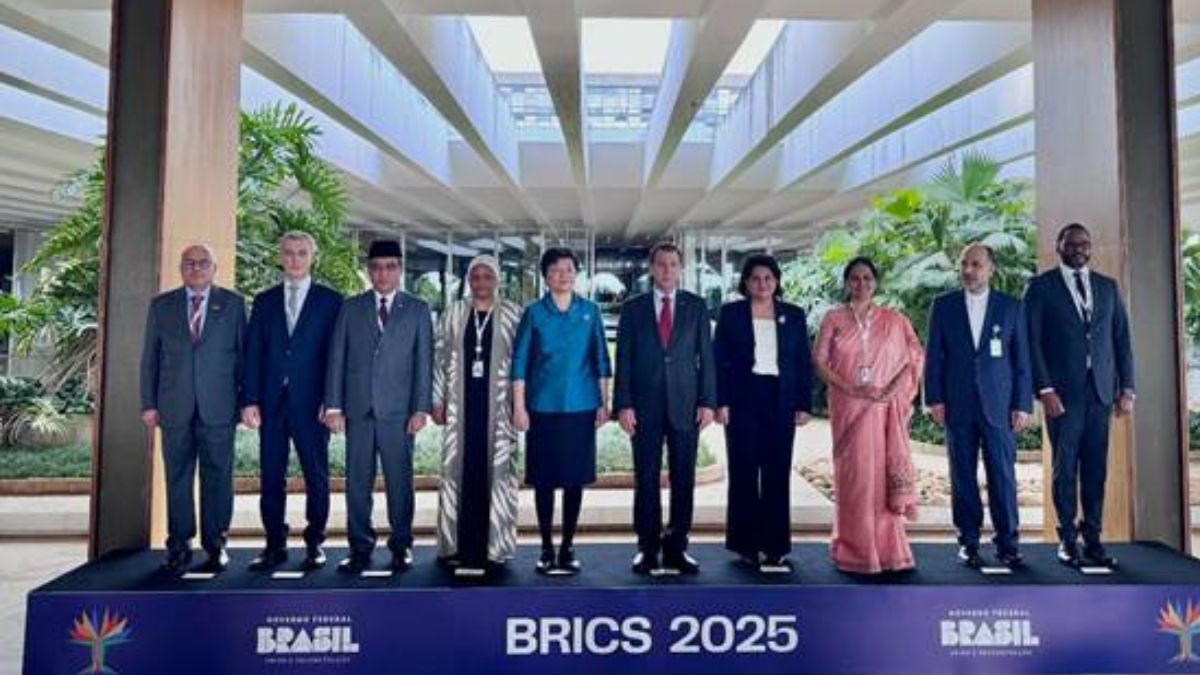
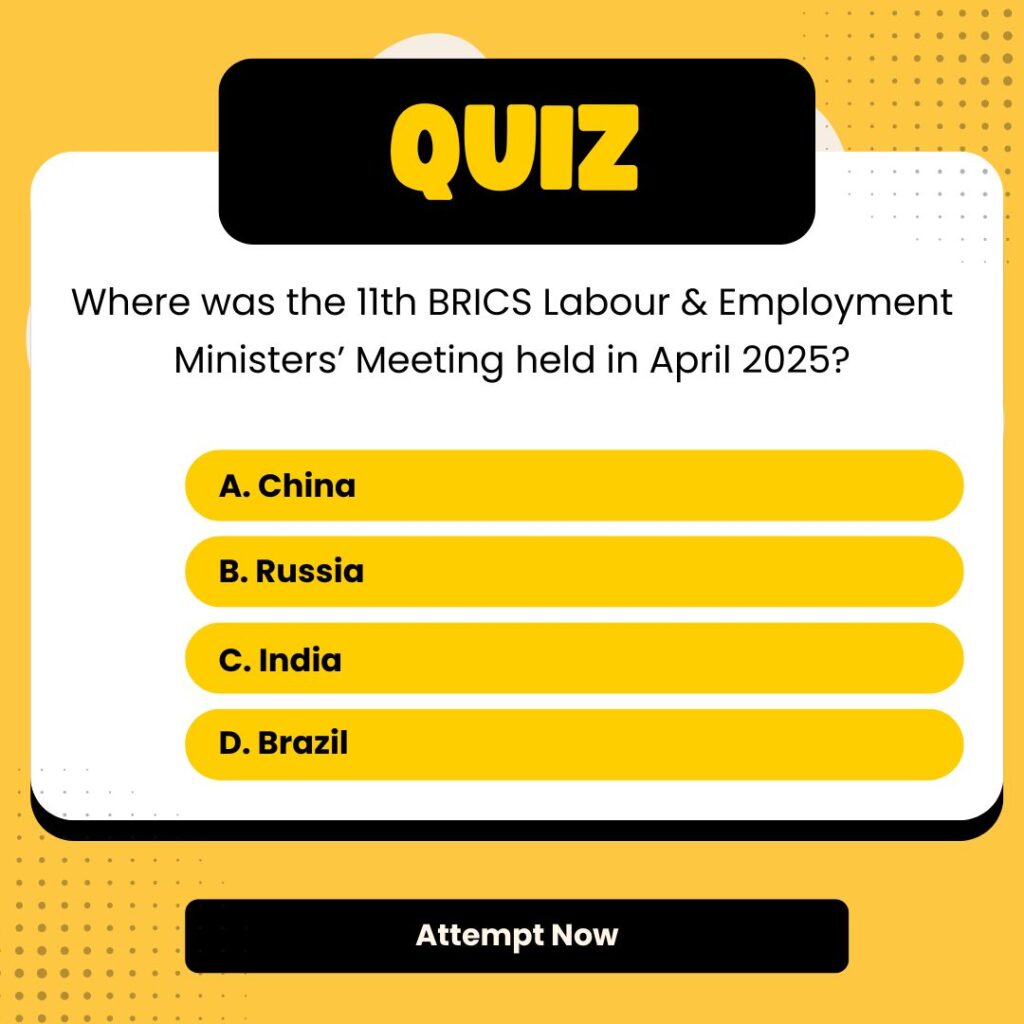
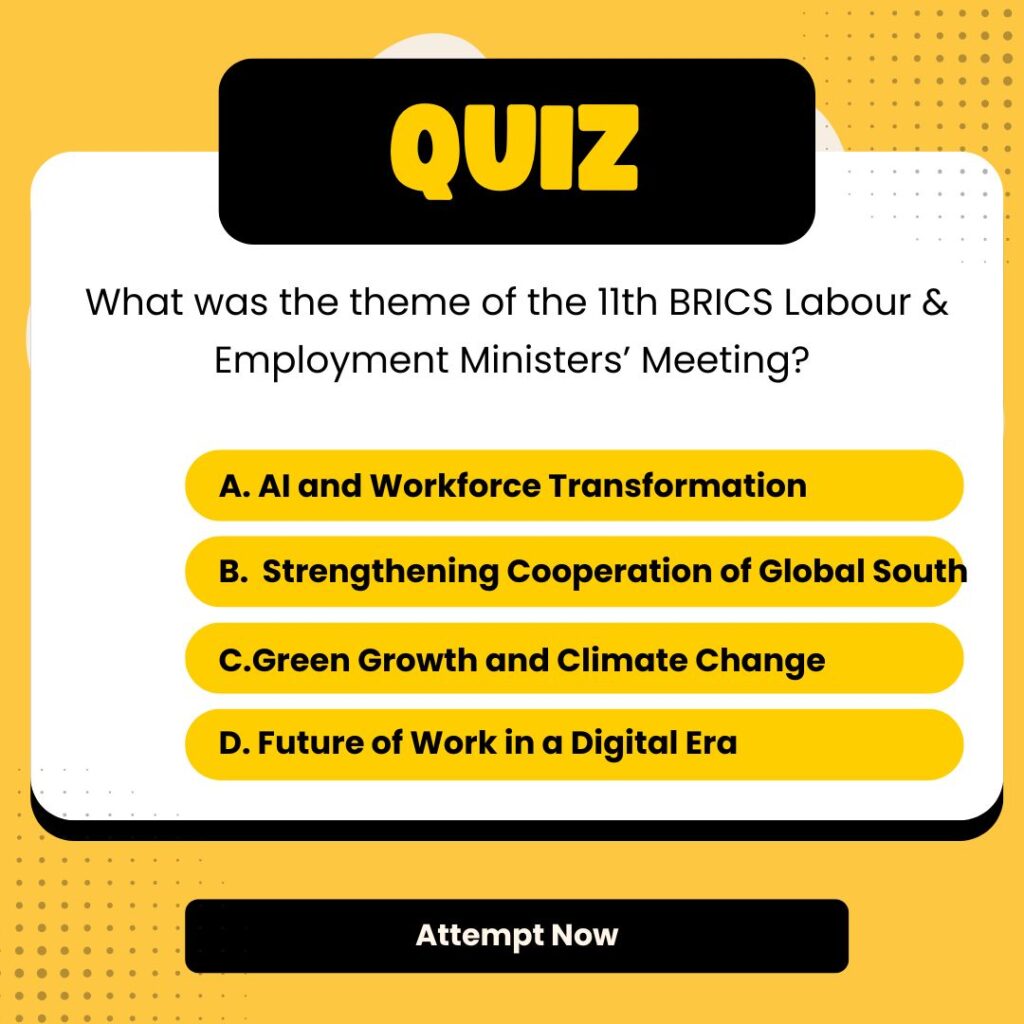

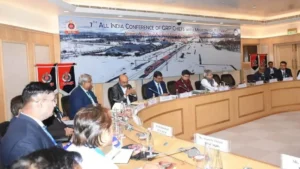 7th All India Conference of GRP Chiefs C...
7th All India Conference of GRP Chiefs C...
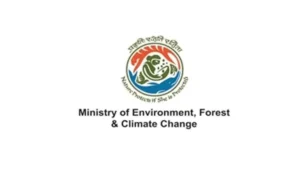 MoEFCC to Organise ‘Him-CONNECT’ at WSDS...
MoEFCC to Organise ‘Him-CONNECT’ at WSDS...
 National Arogya Fair 2026 to Be Held in ...
National Arogya Fair 2026 to Be Held in ...








